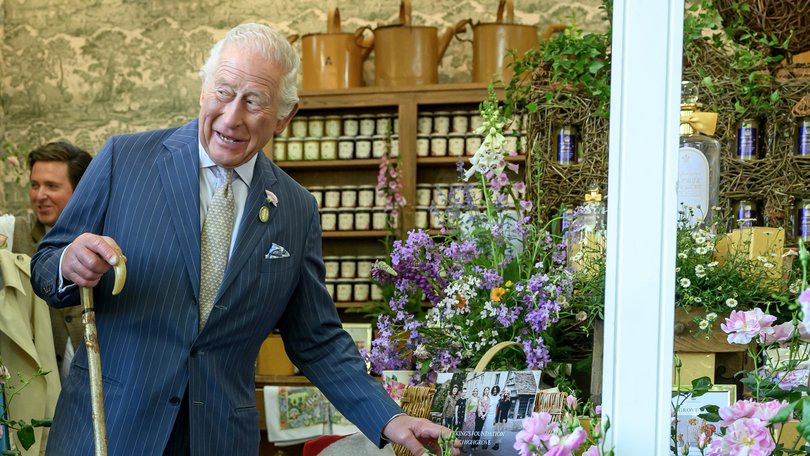King Charles’s royal garden staff flee Highgrove, citing burnout, red pen notes and toxic work culture
From the outside, the royal gardens are manicured to perfection, but behind the clipped hedges of King Charles’s Highgrove estate, unrest has taken root.

From the outside, the royal gardens are manicured to perfection, but behind the clipped hedges of King Charles’s Highgrove estate, unrest has taken root.
It has been revealed that 11 out of 12 full-time gardeners have downed tools in the past year, with insiders pointing to burnout, low pay and relentless demands from the monarch himself.
The mass exodus includes two heads of gardens and a deputy head gardener, and it’s all left the King’s prized gardens facing a not-so-blooming crisis.
Sign up to The Nightly's newsletters.
Get the first look at the digital newspaper, curated daily stories and breaking headlines delivered to your inbox.
By continuing you agree to our Terms and Privacy Policy.“Overwhelmed and underpaid” was the blunt assessment of one staffer, with The Sunday Times reporting complaints of a toxic workplace, low morale, and injuries sustained from trying to meet the King’s exacting expectations.
The departures followed a string of dramatic exits, including a longtime employee and another who failed his probation after apparently failing a floral pop quiz.
“Don’t put that man in front of me again,” King Charles reportedly snapped.
Staff described His Majesty’s style as hands-on to the point of micromanagement.
During his morning strolls, King Charles is said to issue precise instructions expected to be fulfilled by his next lap. These instructions are followed by notes “in thick red ink” — strikingly specific, grammatically corrected, and often emotionally charged.
“There was anger boiling at the surface, very impatient, no politeness at all,” one gardener alleged. And no, staff are not allowed to refer to Charles casually — it’s “Your Majesty,” always.
A 2023 report described a workforce “overwhelmed, under-resourced and constantly struggling to fulfil the King’s requests,” noting that injuries and plummeting morale had become part of the daily grind.
“There is little management of HMTK (His Majesty the King’s) expectations, and I know I would not be allowed to say we are understaffed,” the staffer claimed.
Adding to the frustrations are wages that, for some gardeners in 2022, barely cleared the UK’s minimum wage — $11.98 ($A24.75) to $12.78 an hour, not exactly what you’d expect at a royal residence generating over $8 million last financial year.
Even King Charles’s own former senior gardener, Jack Stooks, told The Post he had to step away after decades on the job.
“I had a back operation and, for want of a better word, did experience getting burnt out as a result… Things had changed at that point… so it was the right time for me to leave.”
The King’s Foundation, which now oversees Highgrove, brought in an external HR firm to probe the mounting grievances. The review confirmed staff shortages, “poor” management, and pay concerns affecting recruitment and retention. It recommended management training, mental health support and a full pay review.
The Foundation also took action, abolishing the Head of Gardens role in favour of a Head Gardner, and restructuring oversight.
But a key figure in the storm is Constantine “Costa” Innemée, one of King Charles’s most-trusted aides and Highgrove’s executive director. Multiple complaints name him as insisting staff prioritise the King’s whims — even when those orders go against professional advice.
“If the king wanted a plant to be moved from A to B but the gardener’s professional opinion was that it would die as a consequence, Innemée’s position would be to insist on it anyway,” a former gardener claimed.
Still, not everyone blames King Charles.
“I think the stance toward the king is unfair,” Mr Stooks said.
“I don’t think this should be aimed quite at him… He’s employed the foundation… but they are running the garden.”
In a statement, a King’s foundation spokesperson defended the record: “We strive to be an exemplary employer. We are proud to regularly report very high satisfaction rates in our annual staff survey.”
They added that turnover is “well below the national average,” and the number of formal grievances is low. Pay, they said, is “regularly reviewed” against industry benchmarks.
“Since 2022, the operating profit has more than doubled, a new education facility teaching traditional heritage skills to hundreds of students has been established, and visitor numbers continue to reach over 40,000 annually.”
